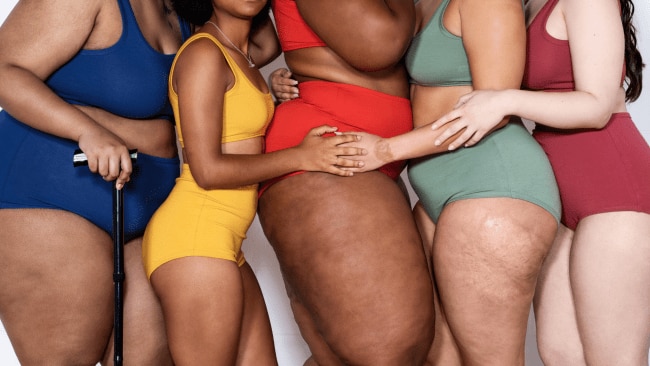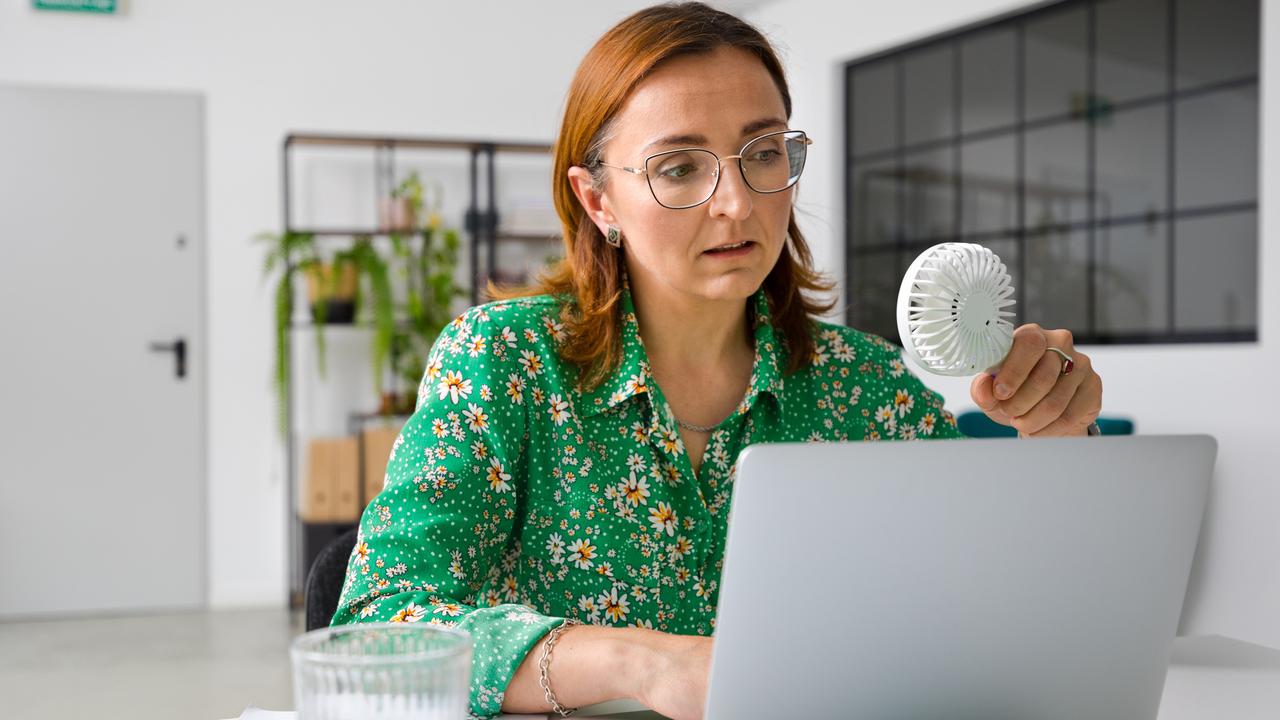This is why your hangovers get worse with age
Alcohol and menopause don't mix
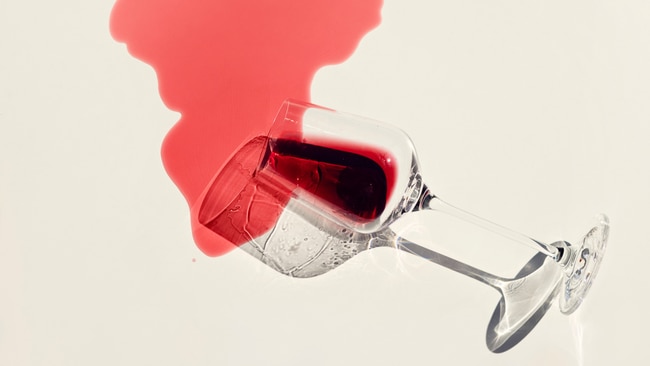
Menopause
Don't miss out on the headlines from Menopause. Followed categories will be added to My News.
Sobriety expert and Grey Area Drinking coach, Sarah Rusbatch shares how alcohol impacts women differently the older they age.
Something I hear from women in their 40s and beyond almost weekly: 'I just can’t drink like I used to...'
It’s a cold, hard fact, that alcohol affects women differently as they age, and is metabolised differently by women than men.
Middle-aged women are the only demographic where alcohol use is on the rise, and my desire for alcohol certainly seemed to increase the older I got. Yet the impact it had on me was also becoming more and more detrimental.
Like what you see? Sign up to our bodyandsoul.com.au newsletter for more stories like this.
What used to leave me with just a slight headache and nothing that a Diet Coke and a couple of Panadol couldn’t fix, in my 40s had me floored, lying on the sofa playing Candy Crush with little energy or ability to do much more.
After finally quitting alcohol four years ago and re-training as a women’s health and Grey Area Drinking coach, I became curious about why our desire for booze increases, as our ability to process it decreases.
Women aged 35-60 are drinking at record levels and I believe it all comes down to hitting our mid to late 30s when the amount of progesterone we produce begins to decline, so we feel more anxious, combined with a time in our lives where the to-do list and pressure is relentless and overwhelming.
We produce progesterone in the second half of our cycle and it’s responsible for us feeling calm, relaxed, sleeping well and general feelings of contentment. What this decline means is that from our late 30s onwards, we naturally begin to feel more anxious, overwhelmed, stressed, have difficulty sleeping and are often on edge.
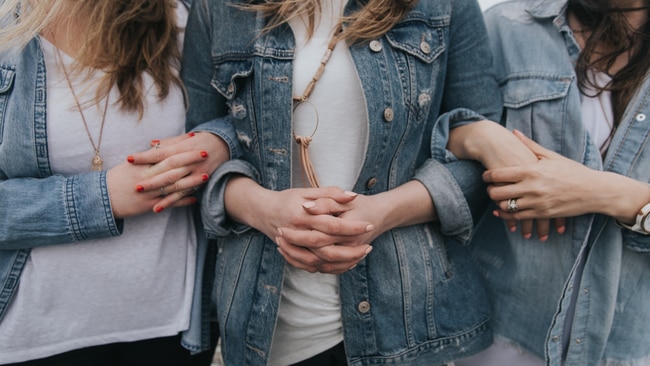
Couple this with the fact that for many of us, life at this age is a relentless 'to-do' list as we juggle the mental load of raising kids, working, running a household, keeping friendships afloat, relationships and caring for our ageing parents.
So physically, we’re feeling more stressed and anxious anyway, with less natural ability to relax, and mentally, our lifestyle means we are experiencing a double whammy of overwhelm with a side of utter exhaustion.
I’m sure that every woman over 40 reading this can relate. And in the short term, alcohol feels like a great solution.
Alcohol is a depressant that works on releasing GABA, the neurotransmitter that makes us feel calm and relaxed. When we’re feeling stressed and anxious, alcohol helps, temporarily, to relieve us of that feeling, and that’s why we drink.
Hence, we go back for more, and more. What starts as an innocent glass to ‘take the edge off’ often ends in a bottle. Then before we know it, we’re drinking a bottle most nights, sometimes opening a second.
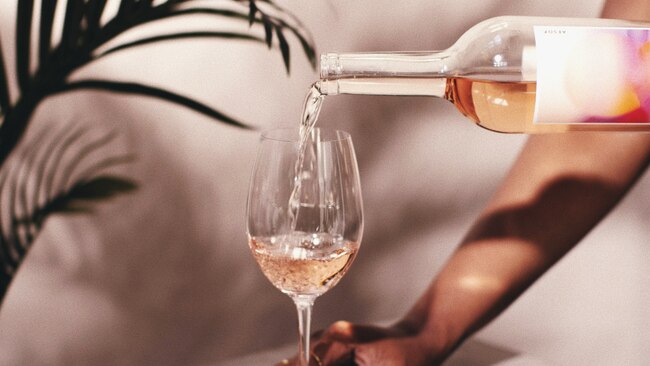
And it's the absolute worst thing we could be doing, because:
1: In the perimenopause years, a woman’s liver begins to shrink in volume year on year, with research showing it can shrink by up to 40%. That’s why we can’t process alcohol the way we did in our 20s and 30s. It’s why we experience such bad hangovers in our 40s and it’s why menopausal women are twice as likely to develop liver disease as men. Our liver simply doesn't function the way it used to.
2: Women produce less of the alcohol metabolising enzyme 'alcohol dehydrogenase' which means regardless of age or hormones, we can’t process alcohol the same way men can. More alcohol enters our bloodstream and we are more prone to alcohol-related illnesses such as strokes and heart disease.
3: Let’s talk about breast cancer. One in five breast cancer diagnoses is directly caused by alcohol according to the Huberman podcast on alcohol. He declared for every 10g of alcohol (a small 100ml of wine) we consume, we increase our chance of developing breast cancer by between 4-13 per cent.
4: Our brain fights hard to get back to homeostasis after this significant release of GABA so it releases the stress hormone cortisol to try and regain some balance of neurotransmitters. We are actually making ourselves MORE stressed by using alcohol to calm our initial stress. So, if we are drinking for stress relief, how can we start to find other, healthier ways to manage our stress and reduce our anxiety?
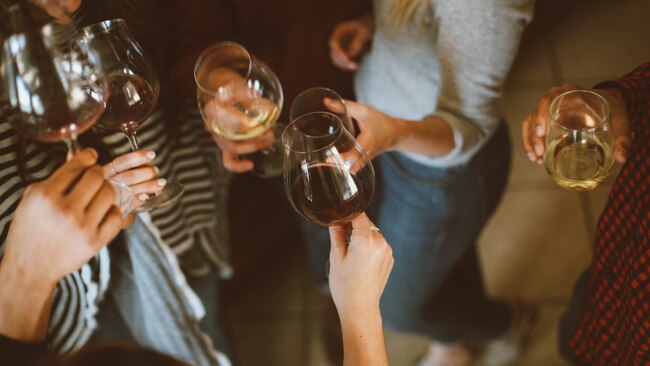
My own ongoing sober journey involves breathwork and yoga, sound healing and hiking, ice baths and saunas, sober raving and sober socialising. And along the way I’ve learnt what works for me, outside of booze, to soothe my frazzled nervous system, relax my tired mind and find peace and contentment at a time in life when it’s incredibly hard to find.
If you’re sober curious and want to cut down on drinking start to educate yourself on what alcohol is doing to your body and join a community of like-minded people on the same path. Connecting with a Grey Area Drinking coach can offer you support, strategies and resources that will make all the difference.
We have to start supporting women in this stage of their lives through education, resources and strategies. And we have to stop marketing wine as self-care because the truth is, it’s anything but.
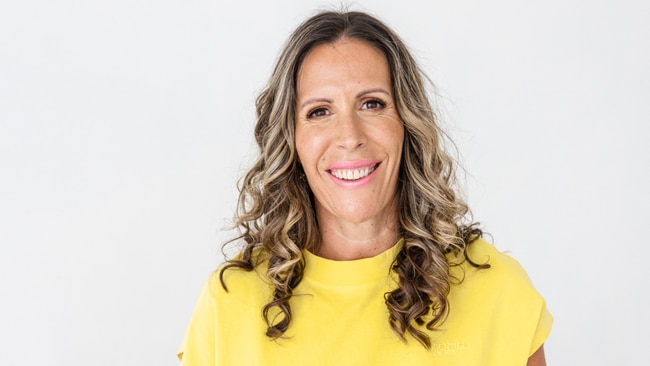
Sarah Rusbatch is an accredited Sobriety and Grey Area Drinking Coach based in Perth. Find out more about Sarah’s programs here.
Originally published as This is why your hangovers get worse with age

